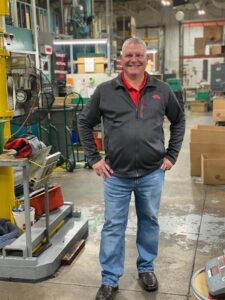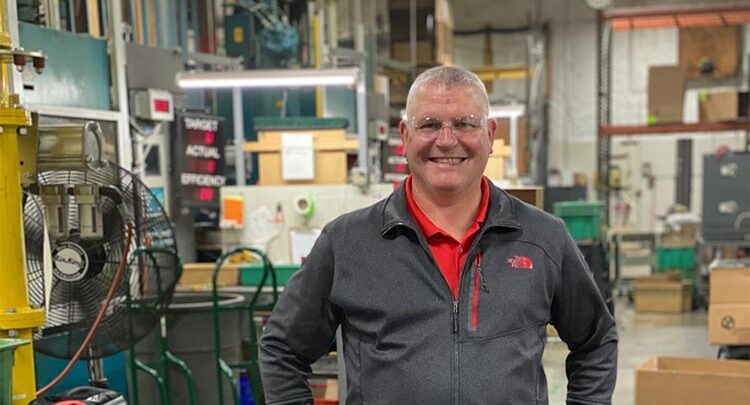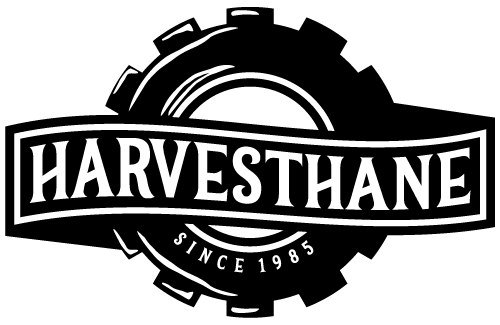Rick Buboltz’ professional experience spans more than 23 years in manufacturing processes and performance from sales to the execution of strategic planning.
But a deeper dive into Rick’s past shows how a paper route and college baseball also influenced his work ethic.
Read more in our recent conversation…

You started with Molded Dimensions as Director of Operations in early April. What’s a typical day like for you?
“It depends on the day. Early in the week, my mornings are busy with meetings, leadership conversations, one-on-one sessions with lead supervisors. My afternoons are reserved for projects in progress. Being new, I want to know what employees produce and the level of difficulty involved with their jobs. That means I’m out on molding machines with the team and I’ll even run a press with them. My goal is to work with every employee in rubber and urethane. In this way, I get to meet them, understand what they’re doing and who they are personally.”
Have you always been hands-on as a professional?
“In my previous job, I did everything in the building. I oversaw all departments and was fully vested in manufacturing. I need to be a jack-of-all-trades in order to understand how the business is running. That’s my strong suit. I love to sit in the plant and have conversations with the workers. I’m a people person and pride myself on getting people motivated.
“It’s all about the workers in the plant. I need them more than they need me. You have to get their buy in and I’ve always been good at that.”
And the buck stops here with your position, right?
“In operations, you deal with a lot of headaches. There are people, process, and equipment failures. The company product needs to get out the door. You have to be thick skinned and broad shouldered because this is what you deal with every day. Not everyone is made to be an operations director. It can be a struggle. In operations, you need to be all-in and fit things together like a puzzle to hit your financial objectives.
“I took the cultural personality test when I applied for the job and I fit. In less than a month’s time that I’ve been here, my daughter says that I have changed quite a bit and am not as stressed working for Molded Dimensions.”
Why do you think that’s the case?
“It’s a whole different culture here with how people work together. Collaboration is the best word I can come up with. It works here. Engineering supports manufacturing. There’s a whole different vibe when you walk into the building. Here I look at all of the resources I have to make operations run better. The leadership committee here is so seasoned and smart.”
What are the growth areas where you see potential for Molded Dimensions?
“There’s a lot of low-hanging fruit with front line supervision in the plant and making sure people are working efficiently and smart. We start with setting the expectation for the day and checking in on the worker living up to that expectation. We also need good people. Get the right number of employees along with the discipline and accountability backing, and this place is going to be an even better machine.”
What’s a good day for an operations director?
“Pumping out the materials. It’s all about getting done in production what we had to do to win the day, the week and then the month and string that together for a year. When I drive home at night, I say to myself, ‘Did we do a good job today?’ When I come back in the following day, I can tell how much we are shipping and if it’s enough to hit our forecast, that’s a good thing.”
How do you think your jobs and experiences as a young man shaped your work ethic today?
“I ran a paper route for the Sheboygan Press and the Milwaukee Sentinel when I was in the 4th and 5th grade. The job meant I was delivering papers in the sun or the rain. The papers get dropped off and you had to be there to pick them up because no one wants a wet paper. I went to college on a baseball scholarship, first as a shortstop and then a second baseman. When we lost our catcher, I had to step in and convert to the position. You learn a lot about time management and discipline through these experiences. The sport builds you up as a person, so that when you get a full-time job, the competitive attitude is still there.”




